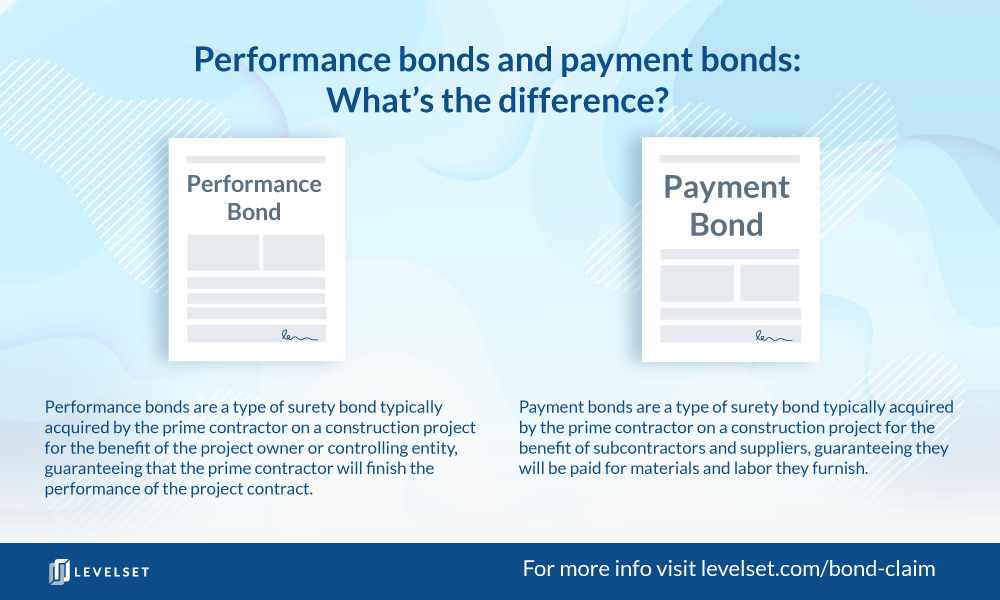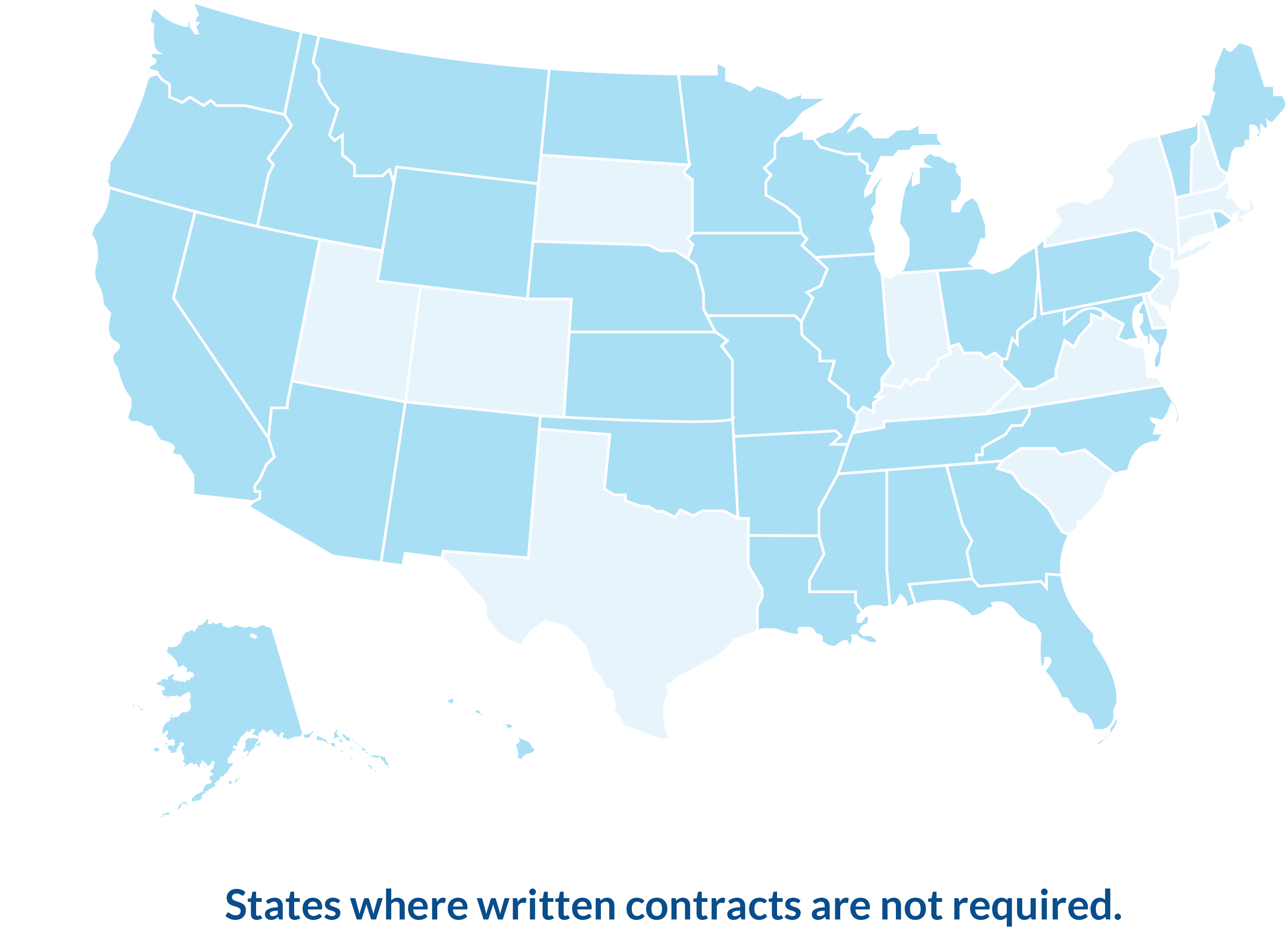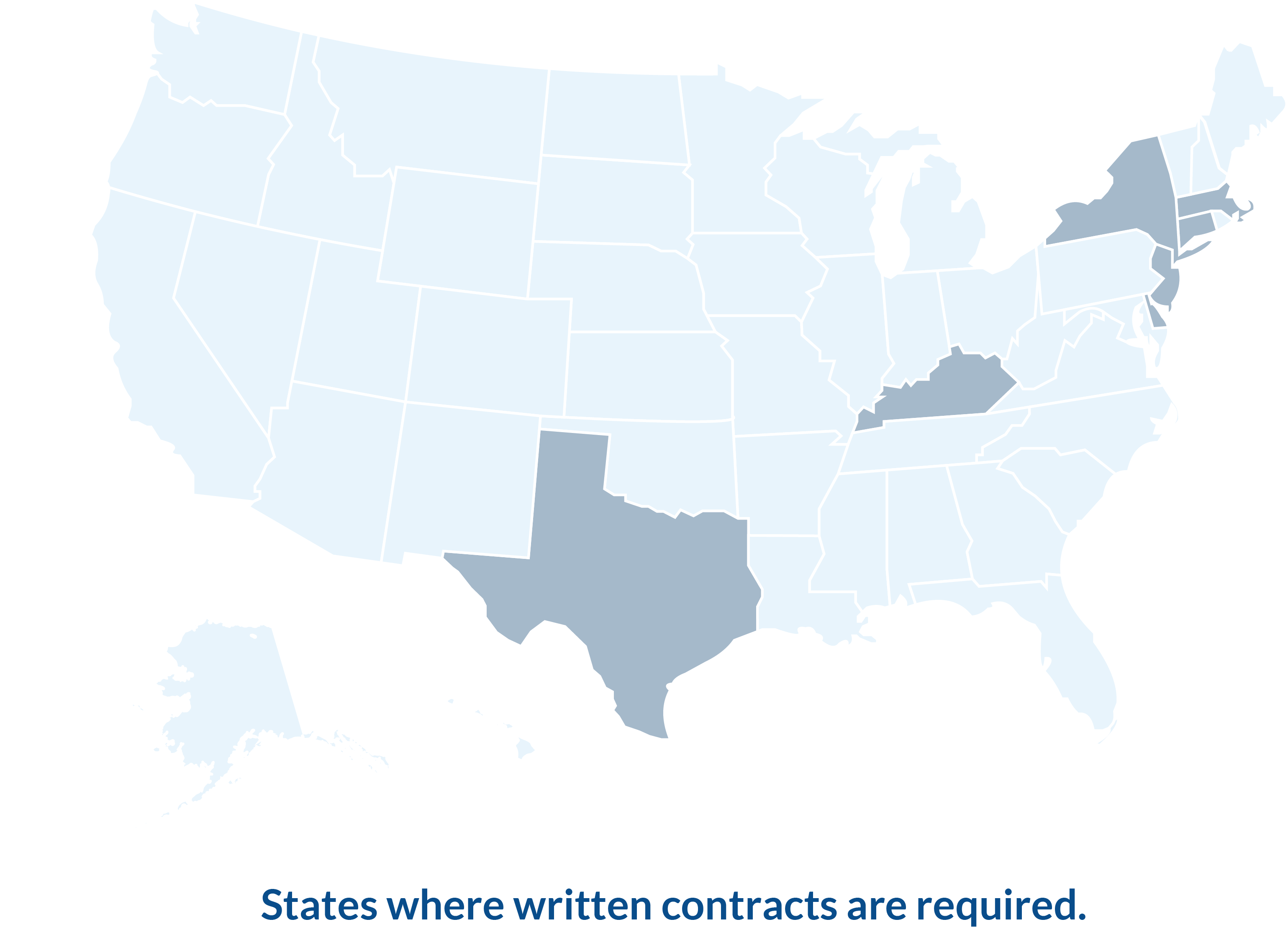Visit your state’s resource page to see everything you need to know to set your job up for success.
- Alabama
- Alaska
- Arizona
- Arkansas
- California
- Colorado
- Connecticut
- Delaware
- Florida
- Georgia
- Hawaii
- Idaho
- Kansas
- Illinois
- Indiana
- Iowa
- Kentucky
- Louisiana
- Maine
- Maryland
- Massachusetts
- Michigan
- Minnesota
- Mississippi
- Missouri
- Montana
- Nebraska
- Nevada
- New Hampshire
- New Jersey
- New Mexico
- New York
- North Carolina
- North Dakota
- Oklahoma
- Ohio
- Oregon
- Pennsylvania
- Rhode Island
- South Carolina
- South Dakota
- Tennessee
- Texas
- Utah
- Vermont
- Virginia
- Washington
- Washington DC
- West Virginia
- Wisconsin
- Wyoming
Texas FAQs & Resources
If you work in Texas, you know it’s particularly difficult to get paid. That’s why we’ve put together some resources just for our Texas customers.
- Download: Texas Lien & Notice Fact Sheet
- Download: One Page Guide to TX Lien Waivers
- Download: How Levelset Helps with Texas Notices
- Webinar: Texas Lien Law 101: Get Paid for Texas Work This Week
- Download: 2023 Texas Monthly Notice Calendar
- Download: 2023 Texas Monthly Notice Control Calendar
- Download: 2023 Texas Lien Deadline Calendar













